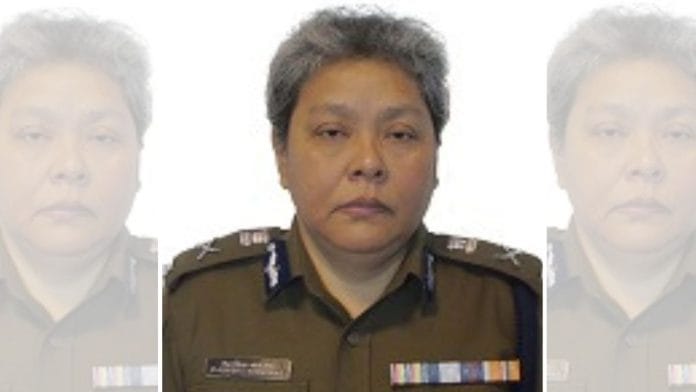New Delhi: Meghalaya made history Saturday by appointing Idashisha Nongrang, a 1992 batch IPS officer, as the Director General of Police (DGP) — the first woman to be appointed to the post. Nongrang will assume office on 20 May following the retirement of the current DGP, L.R. Bishnoi, on 19 May.
Nongrang, a member of the Khasi tribe — one of Meghalaya’s three major tribal communities — is currently serving as the Director General of Meghalaya Civil Defence and Home Guards. She also reportedly served as the acting DGP of Meghalaya for a brief period in 2021. Her tenure as head of police will extend until 19 May, 2026.
“The Governor of Meghalaya is pleased to appoint Idashisha Nongrang… as the Director General of Police… with effect from 20 May, 2024,” read an official notification issued by the Meghalaya government.
The Meghalaya Security Commission, chaired by Chief Minister Conrad K. Sangma, oversaw the appointment and selected Nongrang from a list of three candidates approved by the Union Public Service Commission (UPSC).
Two other officers recommended by the UPSC — R.P. Meena and Deepak Kumar — emerged as candidates after G.P. Singh (1991 batch) and Harmeet Singh (1992 batch) declined the top job, according to news agency PTI.
In a post on X, CM Sangma praised Nongrang for “breaking barriers and making history”.
Heartiest congratulations to Smti Idashisha Nongrang, IPS, on her appointment as the new DGP.
Breaking barriers and making history, she becomes the first tribal lady from our state to hold this position, a moment of immense pride for all of us. Wishing her all the best! pic.twitter.com/U91tGu4x9W
— Conrad K Sangma (@SangmaConrad) May 11, 2024
India witnessed its first female state DGP in 2004 when Kanchan Chaudhary Bhattacharya, a 1973 batch IPS officer, was appointed as the DGP of Uttarakhand — marking a significant milestone in the nation’s policing history.
According to the response provided by the Union home ministry in the Rajya Sabha in February 2023, the proportion of women in the police force has seen a gradual increase from 5.87 percent in 2013 to 11.75 percent in 2022. However, it still falls short of the ministry’s 33 percent benchmark for women’s representation in police departments across the country.
(Edited by Richa Mishra)
Also Read: Where will Shillong’s Dalit Sikhs go? The question at the heart of rift with Khasis






